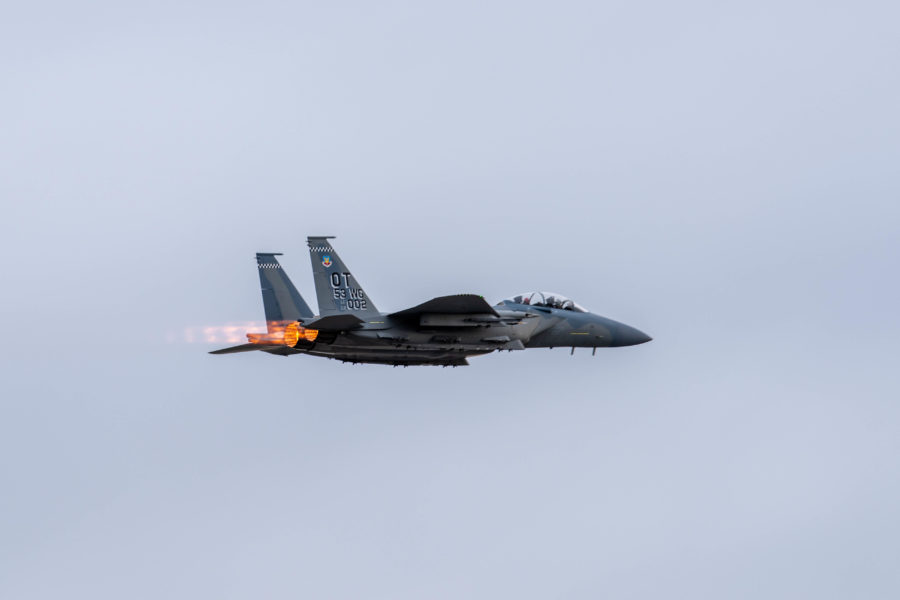Pratt & Whitney has opted not to protest the Air Force’s sole-source contract to GE Aviation to power all the service’s F-15EX fighters, a contract worth $1.58 billion.
GE’s contract, awarded Oct. 29, starts with 29 of its F110-GE-129 engines followed by seven option lots for a total of 329 engines, running ten years, if all the options are exercised. The Air Force is planning to build between 144 and 200 F-15EXs.
Pratt issued a short statement saying only that it “will not submit a protest regarding the F-15EX propulsion decision,” adding that it is “proud to continue our support of the USAF’s F-15 fleet.” Pratt’s F100-PW-220 flies in the F-15C fleet today. Meanwhile, its F100-PW-229 “is a world-class option in the area of performance, reliability, and safety for current and future F-15 and F-16 customers for decades to come,” the company said in a comment aimed at prospective export sales of those aircraft.
The Air Force initially planned to award the entire F-15EX propulsion work to GE, as its was the only engine certified for the aircraft and the Air Force wanted the acquisition to be as non-developmental as possible. After Pratt protested, the Air Force agreed to let the company offer its engine, with the proviso that Pratt bear the cost of certifying the -229 on the F-15EX.
Although the Air Force said Pratt & Whitney was a “qualified bidder,” neither it nor the company would say whether Pratt & Whitney had actually certified its engine on the F-15EX. Only two developmental F-15EX aircraft are flying, and both are involved with other testing—concurrent operational and developmental tests.
Pratt & Whitney also recently lost out in the competition to re-engine the B-52 bomber fleet—a contest won by Rolls-Royce North America—but seems well placed to earn engine improvement work for the F-35 fighter, if the Air Force decides it cannot afford to adopt one of the Adaptive Engine Transition Program engines developed by Pratt and GE in that fighter.
